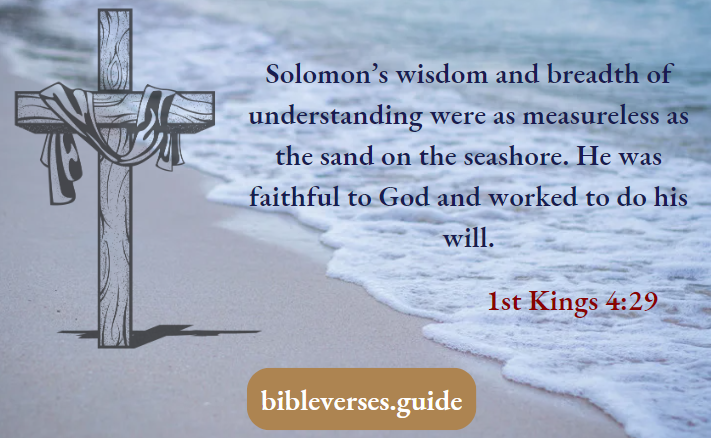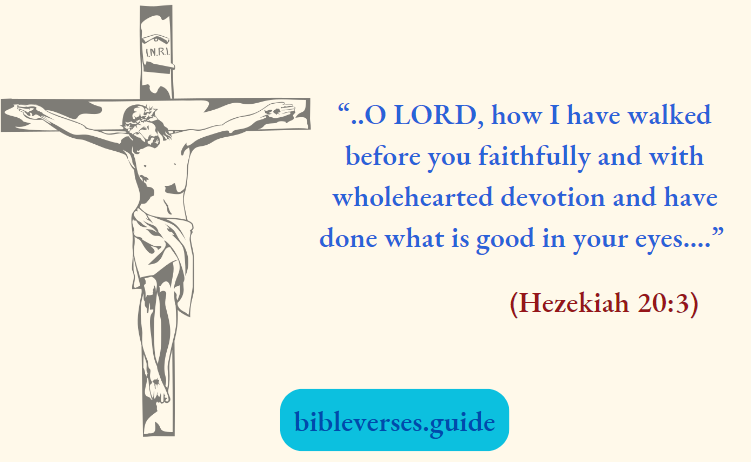Books 11 And 12 The Book of 1st Kings And 2nd Kings
1st Kings
Who wrote the books of 1st King and 2nd Kings: The author is unknown
When was it written: Between 562 and 538 B.C.
Why was it written: These two begin by providing us with the spiritual and physical history of the kingdom of Israel during the reign of Solomon—the son of David and Bathsheba. Following Solomon’s death, the kingdom of Israel became divided into two separate kingdoms—Israel and Judah.
Beginning in the twelfth chapter of 1st Kings all the way through the end of 2nd Kings we are provided with a listing of sorts of the kings, but more importantly, we are given a glimpse into the hearts of the Israelite people during these tumultuous years.
1st Kings And 2nd Kings Bible Summary
Read and Learn More Bible Study For Beginners
2nd Kings ends with the fall of both kingdoms—both being taken captive by great empires in history. But it wasn’t the strength of the Babylonians or Assyrians that ultimately caused the kingdoms to fall. It was God’s plan of discipline and yes, even punishment for Israel’s unrelenting faithless disobedience that ultimately led to their fall.
As we look deeper into these two books of the Old Testament, our primary focus will not be on the kings themselves, but rather the people of Israel under their leadership.
Solomon As king
Solomon did not come into power without a struggle. A half-brother, Adonijah, tried to put himself on the throne. But this was not God’s plan, so after a series of events Adonijah’s plans were thwarted and Solomon took the throne.
Early into his reign as king, the LORD appeared to Solomon; telling Solomon he could have whatever he asked for. Solomon, who was obviously already somewhat astute, asked for wisdom. With wisdom, he told God, he would be able to lead Israel victoriously, attain wealth, and establish himself as a man of honor. God was so pleased with Solomon’s request that he gave Solomon an abundance of everything.

It was also during the early years of Solomon’s reign—the 4th year, to be exact—that Solomon began construction of The Temple. The details given about the building of The Temple are interesting and humbling.
They are interesting in the fact that it is fascinating to read and think about the degree of skill and manual labor that went into such a massive undertaking. The details are humbling because they serve as a reminder that if God is that concerned about the details of a building, how much more is his interest in each of us—the children created in his image?
The pomp and circumstance and the assembly of worship that took place in dedicating The Temple included bringing the Ark of the Covenant to its place of honor in this building consecrated to the LORD.

Because of Solomon’s sin, God came to Solomon and told him the kingdom would not remain in the hands of his family—that it would be ripped from the hands of his son.
True to his promise, near the end of Solomon’s life, one of Solomon’s officials, whose name was Jeroboam, rebelled against Solomon. Following Solomon’s death Jeroboam led the revolt against Israel’s new king, Rehoboam (Solomon’s son).
The Book Of 1 Kings And 2 Kings KJV/NIV/ESV
The revolt resulted in the division of Israel. Ten tribes followed Jeroboam to form the kingdom of Israel, while two remained with Rehoboam to form the kingdom of Judah.
ISRAEL: Asher, Dan, Gad, Issachar, Naphtali, Ephriam/Manesseh, Reuben, Simeon, Zebulun
JUDAH: Judah, Benjamin
You might be wondering why the tribe of Levi is not mentioned. Because the tribe of Levi was not part of Israel’s fighting forces or labor forces, they are not mentioned. From all indications, the loyalties of the Levites—the priestly tribe—were split. Some went with the Northern Kingdom (Israel) and some with the Southern Kingdom (Judah).
Elijah
Elijah was a prophet and faithful man of God who lived in Israel. God used Elijah in some extraordinary and miraculous ways—primarily during the reign of King Ahab, the most evil king to ever lead Israel. Elijah’s primary purpose was to bring God’s message of hope and redemption to Israel.
God prepared Elijah for ministry by putting him in a situation that required Elijah to put his complete trust in God. Elijah had to trust God to provide for him during the severe famine by using Ravens to bring him food and to supply water from an otherwise dry creek bed. Elijah ‘passed the test’ and went on to serve God in mighty ways that included:
- Ringing the blessing of God’s miraculous blessings into the home of a poor widow and her son, and later bringing the son back to life
- Humiliating the prophets of Baal on Mt. Carmel by allowing God to show himself in mighty, mighty ways in order to prove he is the One True God
- Acting as a mentor to Elisha, who would serve as God’s prophet and spiritual leader after Elijah
- Elijah was taken up to heaven by God while he was still living. He and Enoch are the only two people in the history of mankind to enter eternity in this way.
Elisha
Elijah’s life and ministry were similar to that of Elijah’s in the fact that God used Elisha to display his (God’s) power in miraculous ways.
What Is The Purpose Of 1st And 2nd Kings?
- Elisha also brought a widow’s son back to life
- Elisha saved men from eating stew containing poisonous plants by adding flour to the pot
- Elisha healed a man named Naaman from leprosy
- Elisha was able to make an axe head made of metal float on top of the water
2nd Kings
The ‘tales’ of the kings in the 1st and 2nd Kings generally read like a ‘who’s who’ of horrendous leadership. Of the nineteen kings Israel had from the time the kingdom split until the Assyrians took them into captivity, none of them were good. All of them did evil in the eyes of the LORD. Only one, Jehu, was said to be somewhat decent.
Judah had twenty kings during from the time of the split until they were taken into captivity by the Babylonian Empire. Out of twenty, six were Godly men who led the people in the ways of the LORD, two started out on a positive note but like Solomon, were led astray. The other twelve were evil and cared nothing about God.
Three kings that are deserving of special mention are Hezekiah, Manasseh, and Josiah. All three were kings of Judah. Two were Godly kings and one was so evil that his actions took God’s anger at Judah to the breaking point. Because of this king God decided to wipe Judah out and turn them over to the hands of their enemies.
The first of the three was Hezekiah. King Hezekiah’s life is interesting in the fact that he begged God for more time on earth and got it. It happened like this…
Hezekiah became very ill and the prophet Isaiah was sent by God to tell Hezekiah that the illness he was suffering from was one he wouldn’t recover from. Hezekiah was going to die. King Hezekiah wasn’t ready to die, though.
Bible Verses From 1 Kings And 2 Kings

God granted Hezekiah the desire of his heart by telling him he would add fifteen years to his life. At the end of the fifteen years, Hezekiah died and his son Manasseh became king.
Manasseh was the most evil of all the kings of Judah.

He rebuilt all the idols his father had ordered torn down. He placed an Asherah pole (an idol of the fertility goddess) in The Temple. He ‘filled’ Jerusalem with the blood of innocent people and his depraved heart, soul, and mind committed all sorts of terrible sins against himself and others (and of course, against God).
Manasseh’s sins were so great that God’s anger could no longer be contained and his patience with Judah was gone. Because of Manasseh’s sin, God decided that when the time was right he would destroy them by handing them over to the Babylonians.
The third Judean king we want to look at is Josiah. Josiah was the grandson of Manasseh and came to power a little more than two years after Manasseh’s death and his own father’s death (who ruled after Manasseh did).
Josiah was just an eight-year-old little boy when he took the throne. He was the youngest king to lead Judah and one of the longest-serving kings (thirty-one years). King Josiah did what was right in the eyes of the LORD all the days of his life.
Historical Context Of 1 Kings And 2 Kings
He was faithfully obedient in all things. How Josiah came to know and love the LORD so intently is mind-boggling since he had no positive spiritual fraternal influence. But God had a plan and a purpose for the small king—a plan and a purpose stronger than all the sin and evil in the world.
During the eighteenth year of Josiah’s reign, he ordered and oversaw some major repairs of The Temple. In the process of getting the work done, the Book of the Law (the Mosaic Law) was found and read by Josiah’s secretary, Shaphan, to King Josiah.
When Josiah heard the Law being read, he was even more committed than ever to bringing the people’s hearts back to God… where they belonged. Josiah’s actions and heart did not go unnoticed or unappreciated by the LORD. Because of Josiah’s faithfulness, God allowed Judah to remain intact until after Josiah died.
The Fall Of Israel And The Fall Of Judah
Israel was the first of the two kingdoms to fall. While King Hoshea was king of Israel, Assyria captured the capital city of Israel, which was Samaria, and took the people captive. From there the exile took in the entire kingdom. This took place around 721-722 BC. The ten
tribes were scattered throughout the land and to this day have not been ‘found’. While there are undoubtedly scores of descendants from these ten tribes, they are not recognized
Historical Context Of 1 Kings And 2 Kings
In 605 BC Judah fell to the Babylonian Empire which was under the leadership of King Nebuchadnezzar.
The exile lasted seventy years— just as God said it would. Unlike the ten tribes of Israel, the tribes of Judah and Benjamin would survive, because from them would eventually come our LORD and Savior, Jesus Christ.
